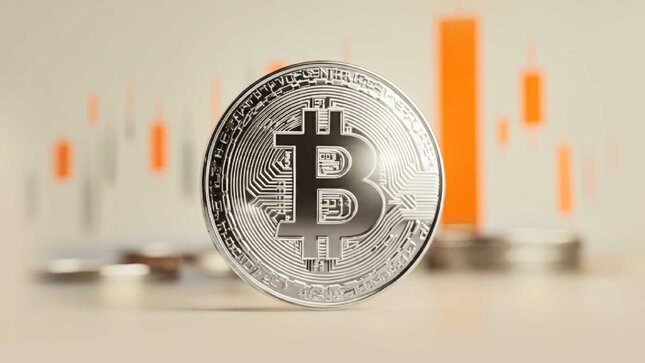In today’s financial markets, where rapid changes and volatility are the norm, success hinges on three critical pillars: regulation, liquidity, and access to a diverse range of assets. Investors, brokers, and financial providers need more than just skills and strategies—they need an environment that fosters trust, transparency, and opportunity.
The role of regulation in financial markets
Regulation is the backbone of trust in financial markets. It ensures that institutions operate transparently, protect client funds, and maintain ethical practices. For investors, working with regulated entities means greater peace of mind, as their funds and transactions are safeguarded by strict oversight.
Regulation also levels the playing field, fostering fair competition while deterring unethical practices. A well-regulated market builds confidence among all participants, enabling brokers and financial providers to offer secure and reliable services.
Liquidity: Exploring market potential
Liquidity is vital for the smooth functioning of financial markets. It reduces transaction costs, narrows bid-ask spreads, and ensures trades are executed efficiently, even during periods of high volatility. Without sufficient liquidity, traders may face slippage, higher costs, and limited market opportunities.
Moreover, liquidity provides access to a wide range of tradable assets. This diversity enables investors to explore opportunities across FOREX, cryptocurrencies, commodities, and indices, diversifying their portfolios while managing risk effectively. High liquidity also attracts institutional players, enhancing overall market activity and stability.
Diverse assets: Expanding opportunities
Having access to a variety of asset classes is another crucial factor for success. The ability to trade across markets—such as FOREX, precious metals, cryptos, and indices—allows investors to capitalize on global trends and economic shifts. For example, cryptocurrencies continue to grow as an asset class, offering both high volatility and high opportunity, while traditional assets like commodities provide stability during uncertain times.
A case study: B2PRIME’s expansion in Africa
For example, B2PRIME Group’s expansion into Africa highlights the critical importance of regulation, liquidity, and effective market access. By securing a Financial Services Provider (FSP) license (No. 54191) from South Africa’s Financial Sector Conduct Authority (FSCA), B2PRIME demonstrates how these pillars come together to support the needs of emerging markets.
Regulation ensures that institutional and professional clients in South Africa can trade within a secure, transparent framework. This builds trust while protecting investors and enhancing the overall market environment. At the same time, B2PRIME’s access to deep liquidity pools allows clients to trade over 235 instruments, including FOREX, cryptocurrencies, commodities, and indices, with confidence and efficiency.
Additionally, the availability of diverse assets empowers South African market participants to diversify their portfolios, manage risks effectively, and explore new opportunities in both global and local markets. The FSCA license further enables B2PRIME to bring financial services closer to the region, eliminating the need to rely on distant financial hubs and promoting localized market development.
Besides FSCA, B2PRIME holds Cyprus, Mauritius, and Seychelles licenses, reinforcing its reputation as a trusted global liquidity provider.
This case study illustrates how financial providers like B2PRIME play a pivotal role in connecting local players to global markets while fostering a well-regulated and liquid trading environment. It’s an example of how regulation and market infrastructure drive growth and opportunity in emerging economies.
This is a sponsored post. The opinions expressed in this article are those of the author and do not necessarily reflect the views of FXStreet. FXStreet has not verified the accuracy or basis-in-fact of any claim or statement made by any independent author. You should be aware of all the risks associated with trading and seek advice from an independent financial advisor if you have any doubts.
Other than B2BROKER, all third-party company names, logos, brands, and trademarks displayed are the property of the respective brand owners. B2BROKER is not affiliated with or endorse such companies.
Editors’ Picks

AUD/USD flubs key technical level as holiday season drains market volume
AUD/USD strung itself along the 0.6700 handle for the second day in a row as the Aussie-Dollar pairing grapples with end-of-year market volumes restraining overall momentum. The Australian Dollar is looking upward as the Reserve Bank of Australia inches toward a fresh rate hiking cycle, with the US Dollar under pressure across the board from a dovish Federal Reserve (Fed) poised for further rate cuts through 2026.

USD/JPY treads water near 156.00 as Yen traders grapple with multiple headwinds
USD/JPY remains caught in near-term congestion just north of the 156.00 handle during the final week of 2025’s trading year. Yen traders are battling headwinds on multiple fronts, with the Bank of Japan carrying much of the vexation risk for Yen markets.

Gold stable above $4,350 as the year comes to an end
Gold price got to recover some modest ground on Tuesday, holding on to intraday gains and changing hands at $4,360 a troy ounce in the American afternoon. The bright metal showed no reaction to the release of the FOMC December meeting minutes.

Ethereum: ETH holds above $2,900 despite rising selling activity
Ethereum (ETH) held the $2,900 level despite seeing increased selling pressure over the past week. The Exchange Netflow metric showed deposits outweighed withdrawals by about 400K ETH. The high value suggests rising selling activity amid the holiday season.

Bitcoin Price Annual Forecast: BTC holds long-term bullish structure heading into 2026
Bitcoin (BTC) is wrapping up 2025 as one of its most eventful years, defined by unprecedented institutional participation, major regulatory developments, and extreme price volatility.
RECOMMENDED LESSONS
Making money in forex is easy if you know how the bankers trade!
I’m often mystified in my educational forex articles why so many traders struggle to make consistent money out of forex trading. The answer has more to do with what they don’t know than what they do know. After working in investment banks for 20 years many of which were as a Chief trader its second knowledge how to extract cash out of the market.
5 Forex News Events You Need To Know
In the fast moving world of currency markets where huge moves can seemingly come from nowhere, it is extremely important for new traders to learn about the various economic indicators and forex news events and releases that shape the markets. Indeed, quickly getting a handle on which data to look out for, what it means, and how to trade it can see new traders quickly become far more profitable and sets up the road to long term success.
Top 10 Chart Patterns Every Trader Should Know
Chart patterns are one of the most effective trading tools for a trader. They are pure price-action, and form on the basis of underlying buying and selling pressure. Chart patterns have a proven track-record, and traders use them to identify continuation or reversal signals, to open positions and identify price targets.
7 Ways to Avoid Forex Scams
The forex industry is recently seeing more and more scams. Here are 7 ways to avoid losing your money in such scams: Forex scams are becoming frequent. Michael Greenberg reports on luxurious expenses, including a submarine bought from the money taken from forex traders. Here’s another report of a forex fraud. So, how can we avoid falling in such forex scams?
What Are the 10 Fatal Mistakes Traders Make
Trading is exciting. Trading is hard. Trading is extremely hard. Some say that it takes more than 10,000 hours to master. Others believe that trading is the way to quick riches. They might be both wrong. What is important to know that no matter how experienced you are, mistakes will be part of the trading process.
The challenge: Timing the market and trader psychology
Successful trading often comes down to timing – entering and exiting trades at the right moments. Yet timing the market is notoriously difficult, largely because human psychology can derail even the best plans. Two powerful emotions in particular – fear and greed – tend to drive trading decisions off course.

